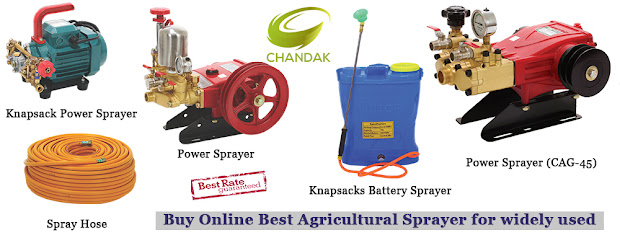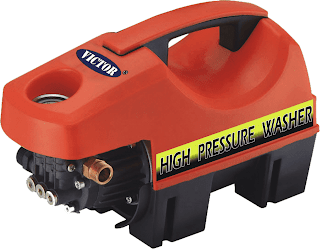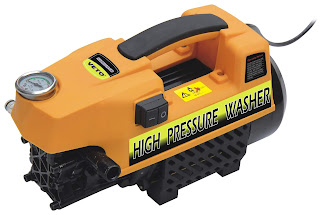A sprayer is a device used to spray a liquid or chemicals. Sprayers are commonly used for spraying of water, weed killers, crop performance materials, pest maintenance chemicals. In agriculture, a sprayer is a piece of equipment that is used to apply herbicides, pesticides, and fertilizers on agricultural crops. The main function of Sprayer is to break the liquid into droplets of effective size and distribute them uniformly over the surface or space to be protected. Another function is to regulate the amount of insecticide to avoid an excessive application that might prove harmful or wasteful.
Agriculture Sprayers come in various designs, types, sizes, equipment and performance specifications. A Power Sprayer is chosen according to need such as, there are small spot spraying area sprayers up to very large sprayers with extensive land and plant spray coverage. Agricultural sprayers have been designed in such a way so they optimize their applicability and performance for the many scenarios, crops, vegetation, and soil that sprayers are used on.
Agriculture Sprayers come in various designs, types, sizes, equipment and performance specifications. A Power Sprayer is chosen according to need such as, there are small spot spraying area sprayers up to very large sprayers with extensive land and plant spray coverage. Agricultural sprayers have been designed in such a way so they optimize their applicability and performance for the many scenarios, crops, vegetation, and soil that sprayers are used on.
Advantages of Power Sprayer:-
1.
Improve spray efficiency
2.
Improve spray efficacy
3.
Increase Savings
4.
Greater safety and less damage to the environment.
The engineering behind power sprayer:-
The
engineering behind modern power sprayers is, they designed to produce a
pressurized flow stream of liquid from the spray nozzle or nozzles. Main parts
of spray systems: a fluid storage tank, sprayer pump, plumbing, hoses, valves,
regulators, gaskets, and nozzle(s). Systems will vary on fluid deliver via
handguns or sprayer attachment arms, as well as various other components such
as strainers. Common sprayer pump types include centrifugal,
diaphragm, and roller pumps.
Points to be consider while selecting a Power
Sprayer:-
1. Spray area size.
2.
Spray plot
location.
3.
Sprayer fluid
rate.
4.
Sprayer fluid
pressure.
5.
Fluid to be
sprayed.
6.
Total spray
volume.
7.
Tank capacity.
8.
Spray
application frequency.
9.
Spray duration.
\





